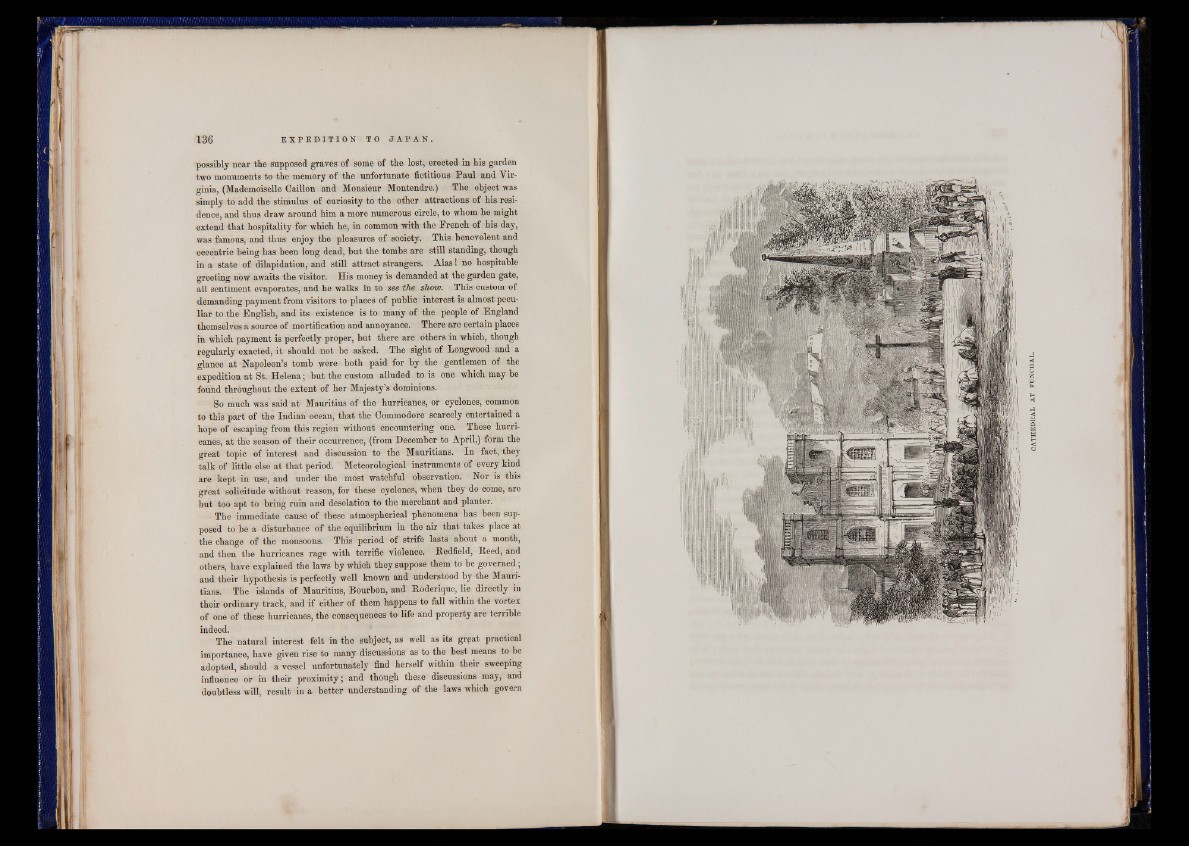
possibly near the supposed graves of some of the lost, erected in his garden
two monuments to the memory of the unfortunate fictitious Paul and Virginia,
(Mademoiselle Caillon and Monsieur Montendre.) The object was
simply to add the stimulus of curiosity to the other attractions of his residence,
and thus draw around him a more numerous circle, to whom he might
extend that hospitality for which he, in common with the Prench of his day,
was famous, and thus enjoy the pleasures of society. This benevolent and
eccentric being has been long dead, but the tombs are still standing, though
in a state of dilapidation, and still attract strangers. Alas! no hospitable
greeting now awaits the visitor. His money is demanded at the garden gate,
all sentiment evaporates, and he walks in to see the show. This custom of
demanding payment from visitors to places of public interest is almost peculiar
to the English, and its existence is to many of the people of England
themselves a source of mortification and annoyance. There are certain places
in which payment is perfectly proper, but there are others in which, though
regularly exacted, it should not be asked. The sight of Longwood and a
glance at Napoleon’s tomb were both paid for by the gentlemen of the
expedition at St. Helena; but the custom alluded to is one which may be
found throughout the extent of her Majesty’s dominions.
So much was said at Mauritius of the hurricanes, or cyclones, common
to this part of the Indian ocean, that the Commodore scarcely entertained a
hope of escaping from this region without encountering one. These hurricanes,
at the season of their occurrence, (from December to April,) form the
great topic of interest and discussion to the Mauritians. In fact, they
talk of little else at that period. Meteorological instruments of every kind
are kept in use, and under the most watchful observation. Nor is this
great solicitude without reason, for these cyclones, when they do come, are
but too apt to bring ruin and desolation to the merchant and planter.
The immediate cause of these atmospherical phenomena has been supposed
to be a disturbance of the equilibrium in the air that takes place at
the change of the monsoons. This period of strife lasts about a month,
and then the hurricanes rage with terrific violence. Redfield, Reed, and
others, have explained the laws by which they suppose them to be governed ,
and their hypothesis is perfectly well known and understood by the Mauritians.
The islands of Mauritius, Bourbon, and Roderique, lie directly in
their ordinary track, and if either of them happens to fall within the vortex
of one of these hurricanes, the consequences to life and property are terrible
indeed. *
The natural interest felt in the subject, as well as its grpat practical
importance, have given rise to many discussions as to the best means to be
adopted, should a vessel unfortunately find herself within their sweeping
influence or in their proximity; and though these discussions may, and
doubtless will, result in a better understanding of the laws which govern